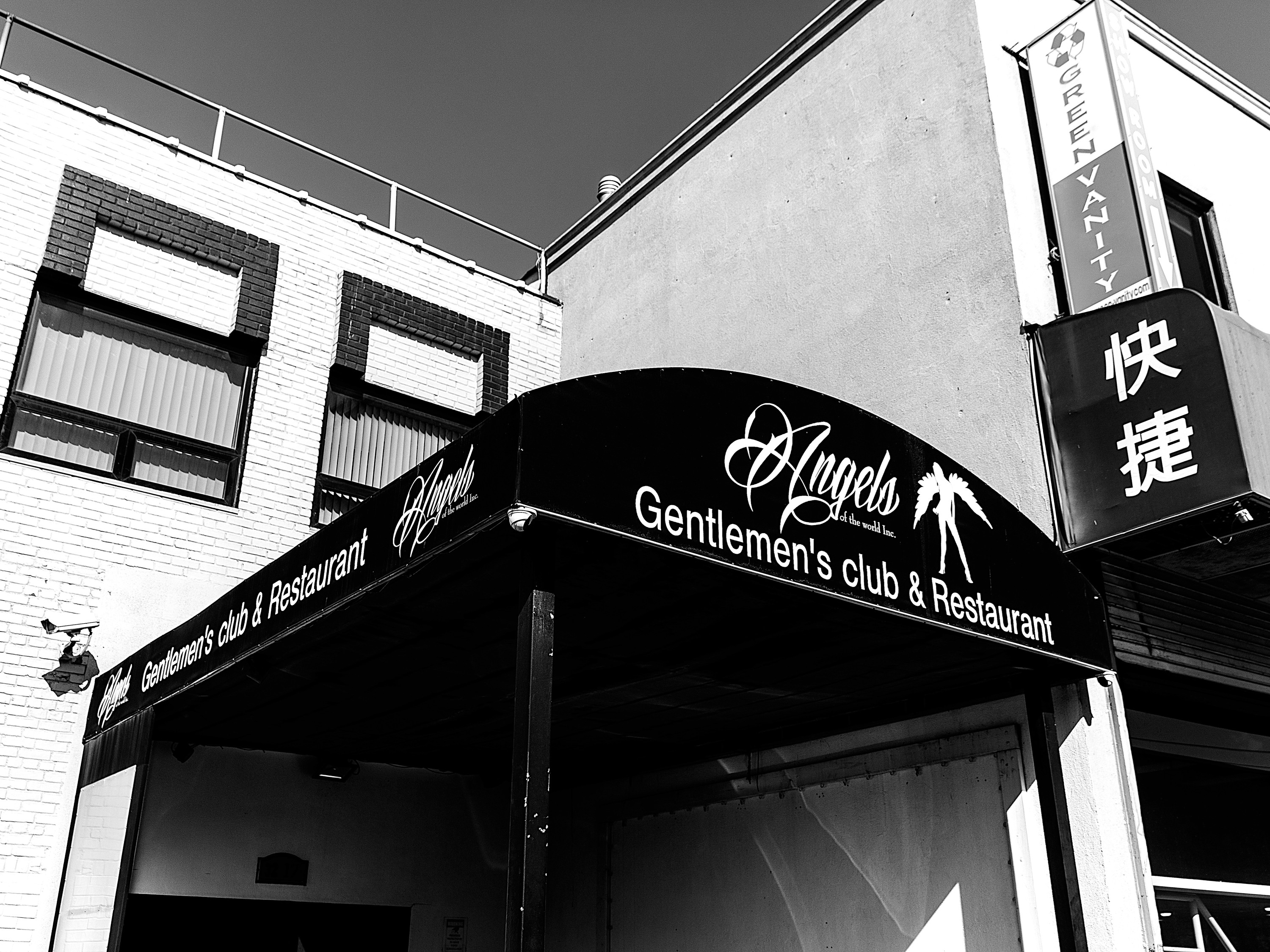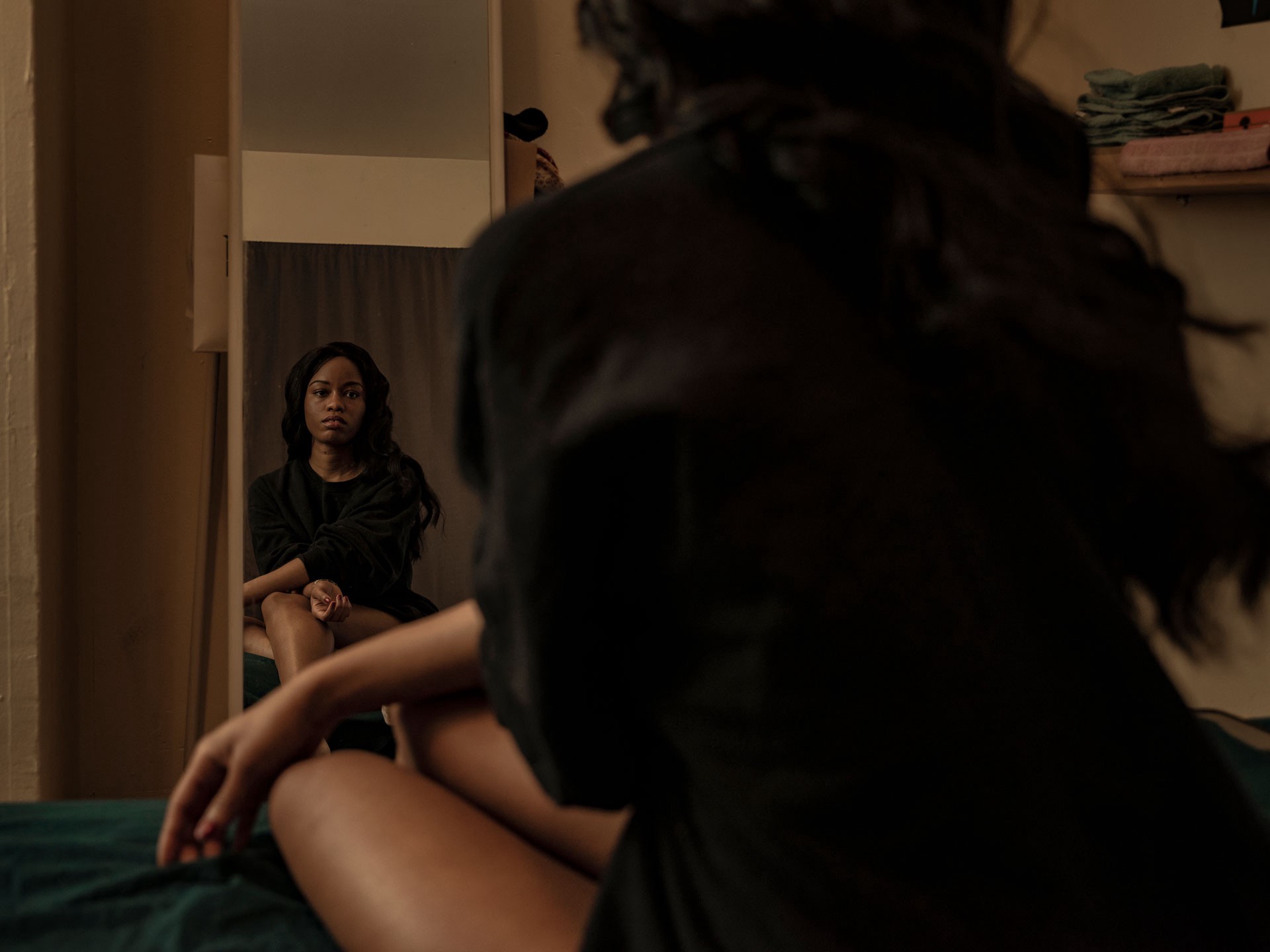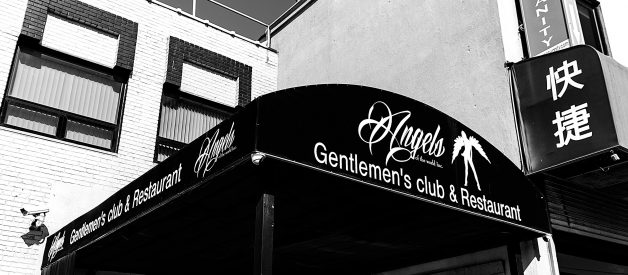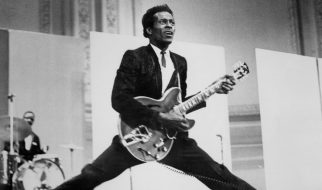By ARIEL HERNANDEZ

From prostitution to drugs to shootings and violent altercations, strip clubs in Queens have seen an increase in criminal activity in recent years. The result has been a growing push to shut them down, led by activists with the support of local elected officials, community boards and residents.
In the past year, some of the most popular urban strip clubs have shut down, with more closings expected in the near future.
Last September, Aces New York, located at 32?10 37th Ave. in Long Island City was shut down due to the continuous calls to the State Liquor Authority (SLA) by state Sen. Michael Gianaris (D-Astoria).
The club, which had drawn traffic from some of the most popular hip-hop artists and athletes, was marred by shootings and assaults, including a May 2016 shooting involving two rival blood gangs.
Aces is just one of the many gentlemen clubs that have either shut down or are in the process of being shut down due to violence. Club Reign, located at 36?14 31st St. in Long Island City, and Club Purlieu, located a few blocks away at 36?04 34th St., have also been shut down because of gun violence.
Just recently, Show Palace, located at 42?50 21st St. also in Long Island City, was shut down by the NYPD for prostitution allegations in addition to a number of shootings and assaults related to the club. Show Palace had the same owners as the popular Sin City gentlemen?s club located in the Bronx, which was also shut down.
Currently on the radar of advocates and law enforcement is Angels NYC, located at 32?17 College Point Blvd. in Flushing. Last month, the club surfaced in the media after a man was fatally shot at a College Point movie theater following an altercation that happened at the club. Earlier this month, the SLA stripped the club of its liquor license because of the incident.
The club also made headlines when rapper and former stripper Cardi B turned herself in to the NYPD?s 109th Precinct in connection to an assault that took place at Angels in August that left two bartenders injured.
The closings of strip clubs were not a surprise to Nuni, a 25-year-old stripper who spoke to the Queens Tribune about her experience working at strip clubs in Queens.
 Nuni is a 25-year-old stripper who has worked at clubs in Queens and in Manhattan
Nuni is a 25-year-old stripper who has worked at clubs in Queens and in Manhattan
Nuni, who had begun to strip in her home state of Colorado while obtaining her bachelor?s degree, said she prefers ?white strip clubs? over ?black strip clubs? because of what happens behind closed doors.
According to Nuni, the clubs are labeled ?black? or ?white? based on the clientele. Manhattan strip clubs generally have a mostly white and wealthy clientele. She said the strippers at those clubs are 65 percent white, 10 to 20 percent black, 20 to 30 percent Latina and less than 10 percent Asian.
Queens is generally home to clubs that mostly feature black and dark-skinned Latina strippers with synthetic bodies, dancing for a mostly black and Latino clientele, usually with rappers and special guests in attendance.
Nuni said a big difference between the two types of clubs is the dancing.
?White strip cubs are mostly talking and black clubs are mostly twerking,? said Nuni.
Nuni, who was used to dancing in what she called ?a liberal college town,? said she experienced a huge culture shock when she moved to New York and danced for the very first time at Angels.
?I had already danced on and off for three years so I felt like I was equipped to dance in New York,? said Nuni. ?I danced for one day at Angels. It was terrible. I didn?t last more than five hours.?
When Nuni was called by Angels to come in, she said the manager told her she wouldn?t have to be topless. However, when she arrived wearing a red leather mini dress, she was asked, ?You?re used to white clubs, aren?t you?? and was then told, ?You need something more revealing like a two-piece, so put that on.?
In addition to the uncomfortable change of attire, Nuni said she was charged the $60 house fee at the start of the night. The house fee is a set number that dancers are expected to pay the club in order to dance there.
?I was surprised that the house fee was drastically low,? said Nuni. ?If a club has a high house fee, it means they expect you to make a lot of money to pay them. But if a club has a low fee, it means they don?t want to hear you complain at the end of the night that you don?t have enough money to pay them.?
Nuni, who was used to walking up to men and engaging in conversation, said at Angels the strippers walked up to men who had stacks of one-dollar bills and just began dancing on them.
?I tried talking to some guys at first, but it was like they weren?t used to speaking to women,? said Nuni. ?It was weird. I was confused. To me it was like I?m trying to make you feel special so you can spend money on me. Also, when you twerk for them, they get to touch you and at white strip clubs, it?s a no-no.?
With a perfectly good pole on the stage and no one using it, Nuni hopped on and did a trick. A guy looked at her, smiled and threw money at her. The bills landed on a bar in between the stage and the tables. Nuni said the bartender looked down and took the money for herself.
Completely offended and feeling robbed, Nuni went to the house mom ? an informal dressing-room manager ? who defended the bartender, saying it was not intentional. Too upset to engage in conversation, Nuni went to the manager and asked for the house fee.
?I told him, ?Look, I?m having a bad night. I would like to leave,?? said Nuni. ?So he cups the small of my back and his hand runs down my butt and he says, ?No, you should stay.? So I just left. I was so mad. That?s how I knew black clubs aren?t for me.?
Nuni said she doesn?t know how most black strip clubs have stayed open for any length of time with strippers making $200 on a good night.
?The culture is very aggressive there,? said Nuni. ?I?ve seen girls fight over money that wasn?t even theirs, and even when I was there, it was empty for most of the night.?
Nuni said when she began to hear about the closing of clubs like Aces and Show Palace, she was happy because she felt that the owners were mistreating their dancers.
As a graduate student at the New School in Manhattan, Nuni said she had to find a way to make full-time money working a part-time job in order to pay for school.
After her bad experiences dancing at Queens strip clubs like Show Palace and Gallaghers, Nuni said she finally realized that it was her hair that was preventing her from getting a job at strip clubs in Manhattan. She went from braids to straight hair and began to get hired at white strip clubs, making as much as $1,500 on a good night.
Nuni said strip clubs are supposed to make people feel good.
?It?s like naked therapy sessions,? said Nuni. ?It?s like having your perfect idealized girlfriend. It?s important to have an area to be sexual with someone and explore your sexuality while not having sex. It?s about the emotional and human connection, and I think strip clubs facilitate that. Money is the great emancipator, but a strip club is the vehicle to that.?
Nuni said it?s unfortunate that clubs such as Lust, formerly located in Brooklyn, and Sin City, formerly located in the Bronx, had to close down due to the violence. She would have preferred to have seen the owners working to better the clubs so they could stay open. Closing them down just leaves a lot of the dancers out of work, she said, especially if their bodies or overall appearance doesn?t fit the criteria to dance at strip clubs in Manhattan.
?In black strip clubs, you can?t dance if you don?t have body augmentation. But you can?t work in white strip clubs with that, so a lot of girls will have to travel very far for work or be out of a job. And it seems unfortunate to me that a lot of the women who do spend a lot on their body strip because they don?t have another option,? said Nuni. ?So for someone that doesn?t have another option, to be out of a job that they changed themselves to get, but can?t get a job in a similar place because of it, is very problematic.?
Nuni earned a master?s degree in humanities and is working on her memoir with the goal of obtaining a Fulbright Scholarship. She said that stripping is temporary for her, but in the meantime hopes to help end the stigmatizing of strippers by mainstream society.
?I?m happy to give a face to dancers that do it even though they have another option, but at the same time, I don?t want to make it seem like it?s something it?s not,? said Nuni. ?I don?t find stripping empowering at all. I don?t find it necessary or vital, but I also don?t think a person should be prejudged because they do it.?
Nuni also said she wants to make it clear that if dancers aren?t careful, it is easy for them to fall victim to prostitution, rape and sexual assault. She told the Tribune that she was raped at a prominent Manhattan club, forcing her to seek therapy to deal with the traumatic experience.
?It?s easy to say this in a position of financial security, but it?s not worth your mental [health] to be placed in a position where you feel pressured to do things,? she said.
Nuni said she didn?t report the rape because doing so would have gotten her blacklisted, preventing her from stripping at high-end clubs in Manhattan.
?Well-meaning women that are educated try to decrease the stigma on strip clubs trying to make it seem like it?s this empowering social justice thing but it?s not,? said Nuni. ?You have to be real about these clubs and what could happen. [Stripping] is physically tiring and not something you could do forever.?
The Queens Tribune reached out to the NYPD for updated crime statistics at the strip clubs listed above but did not hear back in time for press. We also asked Sen. Gianaris for an update on his latest initiatives in targeting night clubs with a reputation of continual violence, but we didn?t hear back in time for our deadline.
Earlier this month, the newly formed Office of Nightlife held town halls in all five boroughs, and also met with the Queens Borough Cabinet. During the meeting, community board district managers expressed outrage about the clubs in their neighborhoods, with specific complaints about how they impact quality of life.
?We have operators that close up and reopen under different names and don?t sign stipulations because they?re smart enough not to sign that stipulation, and in exchange they get that 4 a.m. closing time; they get the unlimited liquor licenses; they get everything they need to operate and a lot of them are the nightlife, the real nightlife,? said Community Board 2 District Manager Debra Markell Kleinert. ?These are the same ones with shootings, that close up and reopen with different names. So how do we address that??
Ariel Palitz, senior executive director at the Office of Nightlife, said the goal is to have more outreach by the NYPD so that situations such as that no longer occur.
Reach Ariel Hernandez at [email protected] or @reporter_ariel


